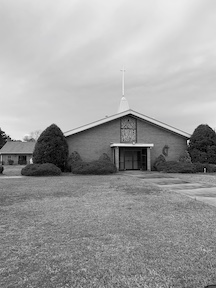You want me to go where???
One of the distinguishing characteristics of pastoral ministry in the United Methodist Church is itineracy. Pastors within United Methodist structures are “appointed” to churches and communities. Such appointing is at the discretion of the presiding Bishop of that area. I am a United Methodist Pastor in the North Carolina Conference. The North Carolina Conference is comprised of a diverse group of churches, communities and pastors in the eastern half of NC. In 2011, it was Bishop Gwynn who appointed me to my first, and so far, only appointment, as Pastor of Faison United Methodist Church in Duplin County, which is located in rural, southeastern NC. When the time comes (this year), it will be Bishop Hope Morgan Ward who will appoint me to a new church and community.
My experience and research have shown that often times pastors are appointed to places that are foreign to them in terms of geography and culture. This is especially the case in many people’s first appointment within the United Methodist structure in North Carolina. Duke Divinity School is one of the best United Methodist training grounds in the world and it is located in the geographical bounds of the North Carolina Conference. As a result, many aspiring pastors from other parts of the country and world (such as the younger version of my Virginia self) migrate into eastern North Carolina to begin their ministry. Many fall in love with the Divinity School, with the City of Durham, and with the appealing nature of North Carolina’s mountains and coast. However, what often happens, is that these aspiring pastors are appointed to places such as Faison; rural communities far different from Durham and their other places of origin.
Because there are United Methodist Churches in these communities, there must be United Methodist Pastors to serve them. In my experience, through much observation and through participating in many conversations, many pastors experience a major disorientation upon arrival at the new place. Many struggle to comprehend the area and its culture, its language, its food, its history. Many, because of their formation in other places feel as if they do not belong in their appointed place. Many, because of these factors and more, seek to exit their appointments in these foreign places as quickly as possible so that they can soon arrive at an appointment in a place that looks and sounds and tastes and smells more familiar. As Wendell Berry pointed out, rural churches ultimately end up as training grounds for pastors who by way of denominational setups utilize the rural church as a springboard to those more familiar, urban locations.[1] Such an approach to place, and one’s place in said place is destructive to the church, the community, and to the pastor as well.
With an awareness that many pastors, churches, and communities suffer as a result of the combination of our itinerant calling and the lack of knowledge of our diverse North Carolina communities, I have constructed a guidebook for itinerant pastors to utilize as a training aid as they prepare to enter, or perhaps soon after entering, communities that are foreign to them. I have done this work as a doctoral project through the Candler School of Theology at Emory University with the hopes that all who encounter this guidebook through denominational and seminary trainings can glean something from its pages that can lead them to an appreciation of their new homeplace. In my experience, there are far too few training resources that focus on matters of place and how to acclimate oneself to a new place well. The guidebook seeks to add to the vast resources available to clergy in the North Carolina Conference, by providing such an appreciative place-based resource.
It is important to note that I am defining “appreciation” as a sort of knowledge that sees things in a particular place or situation in a way that encompasses not just a surface understanding of the way things are, but a contemplative understanding that is born only out of experiencing the way things are in a critical fashion. I choose to use the term “appreciation” as opposed to “understanding” to describe this type of knowledge, as Howard Thurman pointed out in his landmark work Jesus and the Disinherited “understanding” can often be weaponized to cement one’s misguided preconceived notions which ultimately lead to harm.[2]
Those who participate by reading the guide will be led through a process that promotes both “wandering” and “wondering” as place is pondered from the moment of arrival, to the process of discovery, to identification of connections and disconnections, on to immersion.
What my guidebook offers is not intended to be a comprehensive, failproof formula for any intended outcomes for itinerants; hence it is a guidebook and not a blueprint. If our experience with itineracy and the training of pastors has taught us anything it is that there is no failproof formula for effective, and life-giving ministry. Both Lowe and Plyler have written comprehensively about well-intentioned, yet flawed pastoral training programs for the rural church over the past 100 years. In both cases, the writers historically highlight the difficulty of providing a comprehensive training effort for rural pastorates that consider the diversity and challenge of each place in an appreciative fashion.[3]
When United Methodist clergy (non-Deacon) go before the various examining boards and committees, it is a guarantee that their thoughts on itineracy are going to want to be heard. In those committee rooms, we say the right things. We affirm the values of itineracy, and vow that we will always adhere to the United Methodist appointment system. Then, one day, we get the call and we learn about a new place that will become our place.
Itineracy is hard.
My hope is that my wandering and wondering guidebook will provide some assistance to those new to the process of moving (now, this year, including myself).
[1] Wendell Berry, What Are People For? (Berkeley, Counterpoint Press, 1990) p.95-102.
[2] Howard Thurman, Jesus and the Disinherited (Boston: Beacon Press, 1976), p. 66
[3] Kevin Lowe, Baptized with the Soil, (Oxford, Oxford Press, 2016). Larsen Plyler, Fertilizing Faith (Ann Arbor, Proquest LLC 2019).


